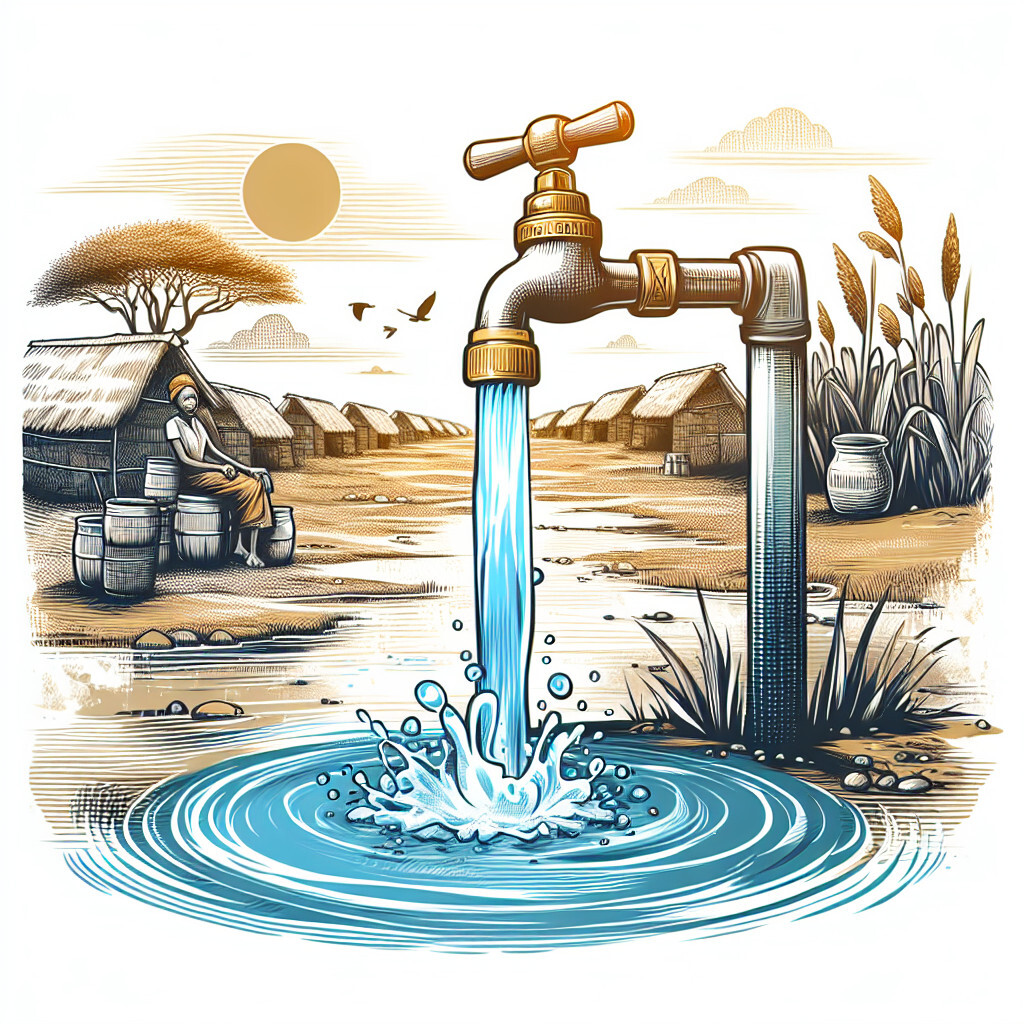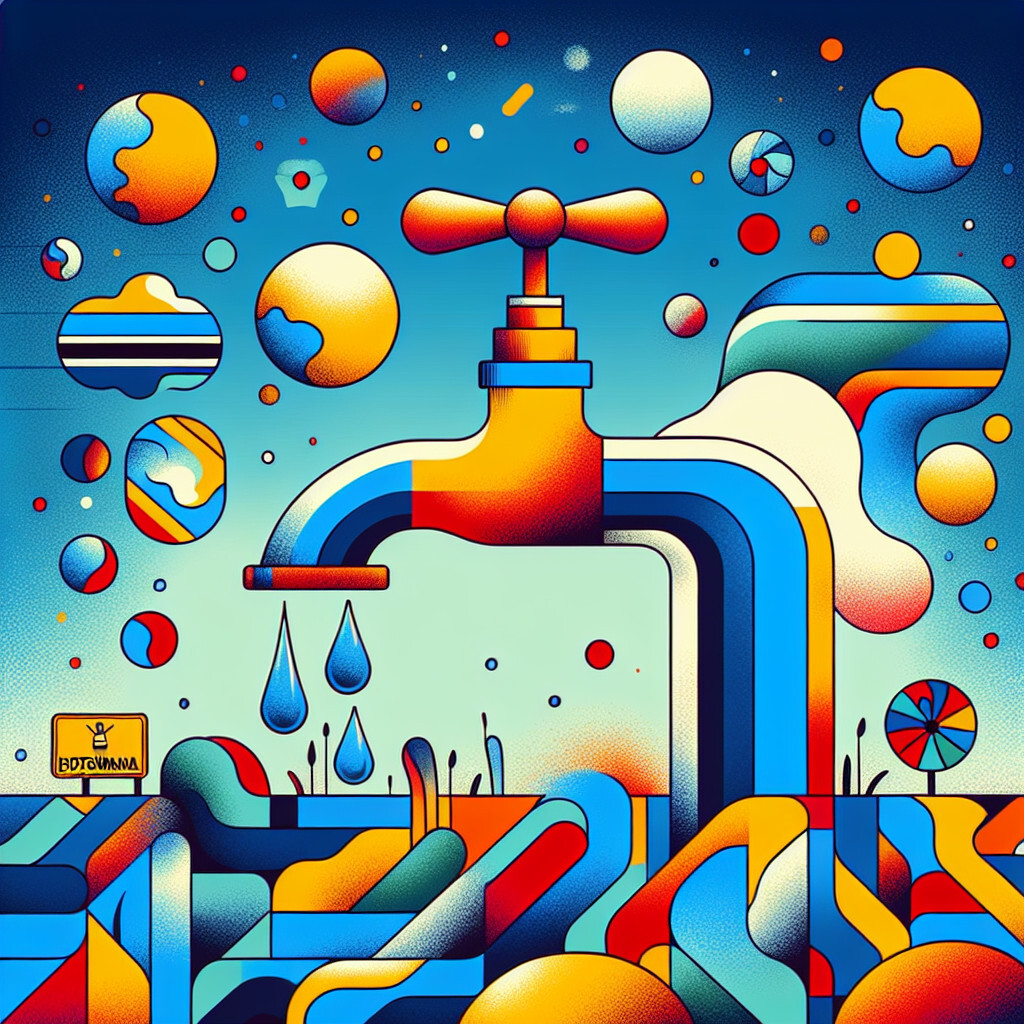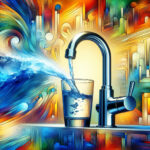-
Table of Contents
“Botswana’s Tap Water: A Blend of Purity and Sustainability.”
Introduction

In Botswana, the tap water is generally considered safe to drink in urban areas, as it undergoes treatment processes to meet the World Health Organization’s standards. However, in rural areas, the quality of tap water can be inconsistent due to limited infrastructure and potential contamination. Therefore, it’s often recommended for travelers to drink bottled water. Despite this, the government of Botswana is making continuous efforts to improve water supply and sanitation throughout the country.
Understanding the Quality of Tap Water in Botswana
Botswana, a landlocked country in Southern Africa, is known for its diverse wildlife and rich cultural heritage. However, one aspect that often goes unnoticed is the quality of its tap water. The quality of tap water in Botswana is a topic of great importance, as it directly impacts the health and well-being of its residents. This article aims to provide an in-depth understanding of the quality of tap water in Botswana.
The water supply in Botswana is primarily sourced from surface water, groundwater, and recycled water. The country’s water supply is managed by the Water Utilities Corporation (WUC), which is responsible for the treatment and distribution of water. The WUC ensures that the water supplied meets the Botswana Bureau of Standards (BOBS) guidelines, which are in line with the World Health Organization’s (WHO) standards for drinking water.
Despite these measures, the quality of tap water in Botswana varies significantly across different regions. In urban areas, where the water treatment facilities are more advanced, the tap water is generally safe to drink. The water undergoes rigorous treatment processes, including coagulation, sedimentation, filtration, and disinfection, to remove any harmful substances and pathogens. Regular testing is also conducted to monitor the water quality and ensure it remains within the acceptable limits.
However, the situation is quite different in rural areas. Due to the lack of infrastructure and resources, the water treatment processes in these areas are not as thorough. As a result, the tap water in some rural areas may not be safe for direct consumption. It may contain harmful bacteria, viruses, and other contaminants that can cause waterborne diseases. Therefore, it is recommended to boil the water or use water purification tablets before drinking.
Furthermore, the quality of tap water in Botswana is also affected by environmental factors. The country is prone to droughts, which can lead to water scarcity. During these periods, the water quality can deteriorate as the water sources become more concentrated with contaminants. On the other hand, during the rainy season, the risk of water contamination increases due to runoff from agricultural lands and urban areas.
In recent years, the government of Botswana has been making efforts to improve the water supply system. Several projects have been initiated to upgrade the water treatment facilities and expand the water distribution network. These initiatives aim to ensure that all residents, regardless of their location, have access to safe and clean drinking water.
In conclusion, the quality of tap water in Botswana is generally good, especially in urban areas. However, in rural areas, the water quality can be compromised due to inadequate treatment processes and environmental factors. Therefore, it is essential to take necessary precautions when consuming tap water in these areas. The government’s ongoing efforts to improve the water supply system are a positive step towards ensuring the provision of safe and clean drinking water for all residents. Despite the challenges, Botswana continues to strive towards achieving its goal of providing quality tap water to all its citizens.
The Impact of Infrastructure on Botswana’s Tap Water Supply
Botswana, a landlocked country in Southern Africa, has made significant strides in its water supply infrastructure over the past few decades. However, the quality and accessibility of tap water in the country remain a subject of concern for both residents and visitors. The impact of infrastructure on Botswana’s tap water supply is a multifaceted issue, influenced by a variety of factors including geographical location, climate change, and government policies.
Botswana is predominantly arid, with the Kalahari Desert covering about 70% of its land area. This geographical feature significantly impacts the country’s water resources, making it heavily reliant on underground water sources and imported water. The infrastructure required to extract and distribute this water is complex and costly. Moreover, the country’s rapid urbanization has put additional pressure on the existing water supply infrastructure, leading to frequent water shortages in some areas.
Climate change has further exacerbated Botswana’s water supply challenges. The country has experienced a decrease in annual rainfall over the past few years, leading to a decline in surface water sources. This has necessitated the construction of more boreholes and dams, as well as the expansion of water pipelines to reach more remote areas. However, these infrastructural developments have been met with various challenges, including financial constraints and environmental concerns.
The government of Botswana has made concerted efforts to improve the country’s water supply infrastructure. The National Water Master Plan, for instance, was developed to guide the management and development of water resources. The plan includes strategies for improving water supply infrastructure, such as the construction of new dams and pipelines, and the expansion of existing ones. The government has also invested in water treatment plants to ensure the tap water is safe for consumption.
Despite these efforts, the quality of tap water in Botswana varies significantly across the country. In urban areas, where the water supply infrastructure is relatively developed, the tap water is generally safe to drink. It is treated to meet the World Health Organization’s guidelines for drinking water quality. However, in rural areas, where the infrastructure is less developed, the tap water may not be safe for consumption. Contaminants such as bacteria, viruses, and harmful chemicals can find their way into the water supply, posing health risks to consumers.
The government has acknowledged these disparities and is working towards ensuring equitable access to safe drinking water for all citizens. This includes investing in rural water supply infrastructure and promoting water treatment practices at the household level. The government is also collaborating with international partners to secure funding for these initiatives.
In conclusion, the impact of infrastructure on Botswana’s tap water supply is significant. The country’s geographical location and climate change have posed considerable challenges to the development of its water supply infrastructure. However, through government initiatives and international partnerships, Botswana is making progress towards ensuring that all its citizens have access to safe drinking water. Despite the challenges, the country’s commitment to improving its water supply infrastructure is a testament to its resilience and determination to provide a basic necessity for its people.
Health Implications of Drinking Tap Water in Botswana
Botswana, a landlocked country in Southern Africa, is known for its diverse wildlife and rich cultural heritage. However, one aspect that often raises concerns among both locals and tourists is the quality of tap water. The health implications of drinking tap water in Botswana are a topic of significant interest, given the country’s semi-arid climate and the challenges it faces in terms of water supply and sanitation.
The quality of tap water in Botswana varies greatly depending on the location. In urban areas, the tap water is generally safe to drink, as it is treated and monitored regularly by the Water Utilities Corporation (WUC). The WUC adheres to the World Health Organization’s guidelines for drinking water quality, ensuring that the water is free from harmful bacteria, viruses, and chemical contaminants. Therefore, in cities like Gaborone, Francistown, and Maun, the tap water is typically safe for consumption.
However, in rural areas and remote villages, the situation is quite different. Here, the tap water often comes from boreholes or wells, which are susceptible to contamination from various sources. These may include agricultural runoff, seepage from latrines, and naturally occurring substances like fluoride and arsenic. Consuming such water can lead to a range of health issues, from diarrhoeal diseases to dental and skeletal fluorosis, a condition caused by excessive intake of fluoride.
Moreover, the scarcity of water in Botswana, particularly during the dry season, can exacerbate these issues. In times of drought, the quality of tap water can deteriorate as water sources dry up and the concentration of contaminants increases. This can lead to outbreaks of waterborne diseases, posing a significant public health risk.
Despite these challenges, the government of Botswana has made considerable efforts to improve the quality of tap water. Over the past few decades, they have invested heavily in water treatment facilities and infrastructure, particularly in urban areas. They have also launched various initiatives to educate the public about the importance of safe water and sanitation practices.
However, there is still much work to be done, particularly in rural areas. Access to clean, safe drinking water remains a challenge for many communities, and the health implications of drinking contaminated tap water continue to be a concern. It is crucial for the government and international aid organizations to continue their efforts in this area, to ensure that all Batswana have access to safe drinking water.
In conclusion, while the tap water in urban areas of Botswana is generally safe to drink, the same cannot be said for many rural areas. The health implications of drinking tap water in these areas can be serious, ranging from diarrhoeal diseases to fluorosis. Therefore, it is advisable for visitors to Botswana, particularly those travelling to rural areas, to drink bottled water or use water purification methods. At the same time, it is important for ongoing efforts to improve water quality and sanitation in Botswana to continue, to safeguard the health of all who live in this beautiful country.
Sustainable Solutions for Improving Tap Water in Botswana
Botswana, a landlocked country in Southern Africa, is known for its rich wildlife and diverse landscapes. However, one of the significant challenges the country faces is the provision of clean and safe tap water to its citizens. The quality of tap water in Botswana is a matter of concern due to various factors, including water scarcity, pollution, and inadequate infrastructure. This article will delve into the current state of tap water in Botswana and explore sustainable solutions for its improvement.
Botswana is predominantly a desert country, with the Kalahari Desert covering about 70% of its land area. This geographical feature significantly contributes to the country’s water scarcity problem. The country relies heavily on underground water sources and imported water to meet its needs. However, these sources are not always reliable or sufficient, leading to frequent water shortages. Moreover, the quality of the available water is often compromised due to pollution from human activities and natural contaminants.
The tap water in Botswana is treated to make it safe for consumption. However, the treatment process is not always effective in removing all contaminants, especially in rural areas where the infrastructure is less developed. As a result, many people in Botswana rely on bottled water or boil their tap water before drinking it. This not only adds to their daily expenses but also contributes to environmental pollution due to the disposal of plastic bottles.
Addressing the issue of tap water quality in Botswana requires a multi-faceted approach that combines technological innovation, policy reform, and community involvement. One of the sustainable solutions for improving tap water in Botswana is the use of advanced water treatment technologies. These technologies can effectively remove contaminants from water, making it safe for consumption. For instance, reverse osmosis systems can remove up to 99% of dissolved solids, bacteria, and viruses from water. Similarly, ultraviolet (UV) disinfection systems can kill harmful microorganisms without adding chemicals to the water.
Another solution is the implementation of strict water quality standards and regulations. The government of Botswana should enforce stringent measures to prevent water pollution from industrial activities and improper waste disposal. Regular monitoring and testing of water sources are also crucial to ensure that the water is safe for consumption.
Community involvement is also a key factor in improving the quality of tap water in Botswana. Educating the public about the importance of water conservation and proper waste disposal can help reduce water pollution. Moreover, involving local communities in water management initiatives can empower them to take ownership of their water resources and contribute to their protection and preservation.
In conclusion, the quality of tap water in Botswana is a pressing issue that requires immediate attention. However, with the right combination of advanced water treatment technologies, strict regulations, and community involvement, it is possible to provide clean and safe tap water to all citizens of Botswana. These sustainable solutions not only address the immediate problem of water quality but also contribute to the long-term goal of water security in the country.
Q&A
1. Question: Is the tap water in Botswana safe to drink?
Answer: No, the tap water in Botswana is generally not considered safe to drink. It’s recommended to drink bottled or boiled water.
2. Question: What are the common contaminants in Botswana’s tap water?
Answer: The common contaminants in Botswana’s tap water can include bacteria, viruses, and heavy metals due to inadequate water treatment facilities.
3. Question: How does the government of Botswana ensure the quality of tap water?
Answer: The government of Botswana has implemented water treatment processes and regular testing to ensure the quality of tap water. However, due to infrastructural challenges, the quality can vary in different regions.
4. Question: Are there any initiatives to improve the tap water quality in Botswana?
Answer: Yes, there are several initiatives by both the government and non-governmental organizations to improve the tap water quality in Botswana, including infrastructure development and water treatment projects.
Conclusion
The tap water in Botswana is generally considered safe to drink in urban areas, but it may not be safe in rural or remote areas due to potential contamination. Therefore, it’s recommended to drink bottled water when traveling outside of cities.






